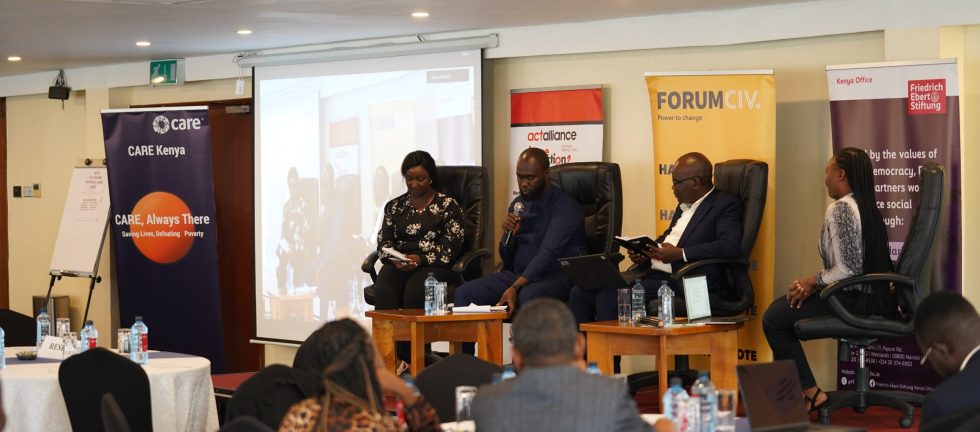African Experts Call for Actionable Framework on Global Goal on Adaptation
By Milliam Murigi
African climate experts have called for a practical and inclusive Global Goal on Adaptation (GGA) framework that reflects the continent’s realities and ensures measurable action rather than mere rhetoric.
Speaking during the Africa Civil Society Organizations (CSOs) pre-COP30 meeting in Kenya’s capital, Nairobi, participants underscored that the success of COP30 in Belém, Brazil, will depend on whether countries agree not only on GGA indicators but also on the means of implementation (MOI) — the financing, capacity building, and technology transfer needed to turn commitments into tangible results.
“Even if we end up with indicators agreed on at COP30, without means of implementation, it will just be something on paper — nothing less, nothing more,” Nicholas Abuya, Global Programme Resilience Advisor, Christian Aid noted.
According to the experts, adaptation should not be viewed as an act of survival but rather as a pathway to climate-resilient development. True adaptation, they argued, must empower communities to take charge of their own lives instead of depending on external aid during every climate disaster.
“Adaptation should lead to climate-positive growth, not just sustain people in their normal condition. Communities must be the protagonists of their own lives,” said Juma Ignatius, Senior adaptation advisor, Powershift Africa.
He revealed that negotiators need to ensure that the indicators being developed under the GGA framework are locally relevant and Africa-centric, addressing the unique vulnerabilities of the continent.
The reason is that global generalities that overlook regional needs could render the framework ineffective. “The indicators must be global in nature but locally relevant. They should capture Africa’s priorities — from climate-resilient agriculture and water systems to biodiversity protection,” said Juma.
Another key concern raised was adaptation financing, which the expert said remains inadequate, inaccessible, and poorly tracked. They called for robust systems to monitor not just the quantity but also the quality of adaptation funding flowing to the continent.
“Adaptation finance is not just about mobilizing resources, it’s about ensuring the money reaches those who need it most,” Sheila Apiny, Regional climate justice advisor, ActionAid, said. “We must address barriers such as complex funding procedures that shut out local communities, women, and youth.”
According to Abuya, there is also need to strike a balance between incremental and transformational adaptation, noting that while large-scale systemic change is important, small, gradual interventions remain vital for communities still grappling with immediate climate shocks.
“The push for transformational adaptation should not dismiss the importance of incremental measures. In Africa’s arid regions, for instance, incremental adaptation has saved lives during droughts,” Abuya cautioned.
According to him, as the global adaptation framework moves from the technical to the political negotiation stage, African delegates should be keen to ensure their voices are not sidelined. He called for flexibility in the indicators so they can be applied at national and subnational levels, from government plans to community-led adaptation initiatives.
“Adaptation is context-specific and very local. Indicators should inspire collective global action while remaining flexible enough to support local realities,” said Abuya.

